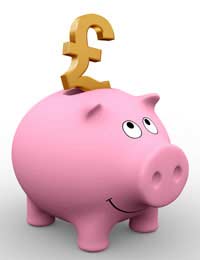Pension Contributions Q & A

The rules regarding pension contributions can be confusing, and can vary depending on whether you are paying into a person or company pension. This article answers some of the most frequently asked questions relating to pension contributions.
Q. My company recommends I make additional pension contributions and told me that there is a tax benefit for doing so. Can you explain what this means?
You pay income tax on your earnings, and you are taxed at source, meaning that your wage slip usually states the amount of tax you have paid from your salary. If you have a company pension, then before any pension contribution is made, your pension provider is entitled to claim tax back from the government at the basic rate of 20 per cent. This is known as basic rate tax relief.
What this means is that for every £80 your company pays into your pension, you end up with a pension pot of £100. This is the Government’s incentive to get people to save as much in their pensions as possible.
Q. I don’t pay tax, can I still get tax relief on a personal pension?
Yes. Even if you do not pay any tax, perhaps because your salary falls below the tax threshold, then you can still pay into a personal pension scheme and benefit from the basic rate tax relief of 20 percent, up to the limit of £2,880. So, if you pay the maximum £2,880 into your personal pension each year, the Government will help boost your fund size to £3,600.Be advised however, that there is no tax relief for pension contributions over the £2,880 limit.
Q. Can I make contributions into my wife’s pension?
You can put money into someone else's personal pension, for example your wife’s or a child or even grandchild. They will benefit from the basic rate tax relief on the contributions, but the payments won’t have an effect on your own tax rate or bill.If your wife does have an income, you will be entitled to pay in up to £2,880 a year which will qualify for the tax relief and be increased to £3,600.
Q. Aside from basic rate tax relief, do pensions offer any other tax advantages?
Your pension is a very tax efficient savings vehicle, and unlike other investments it doesn’t pay any tax on capital gains made or any income from the investments held within it.Furthermore, when the pension reaches maturity, you are entitled to withdraw up to 25 percent of the total value, as a tax-free lump sum.
Q. I began paying contributions into an occupational pension two years ago, but was made redundantly recently. Will I get my contributions refunded?
Generally speaking, people can only get their pension contributions refunded if they withdraw or are withdrawn from the pension scheme within two years of having started making payments.You should check with your former employer whether you are still within that timeframe, although given that you were made redundant they may be prepared to be more flexible.
Bear in mind, however, that the pension scheme administrator will deduct tax from any refund due to you, as it would have been added as part of the basic rate tax relief that no longer applies once you are out of the pension.
- Annuities: A Rip Off or a Complex Retirement Product?
- Why the CBI is Pushing for a Delay on Enforced Retirement
- Pension Companies Forcing Thousands Into an Impoverished Retirement
- Pensions: How to Take Control of Your Pension Pots
- Public Sector Workers to Pay More Into Their Pensions
- The Government's New Work Based Pension Scheme
- The 12 Biggest Pension Mistakes
- Pensioner Savings Q & A
- Can You Close Your Pension Shortfall?
- Understanding Taxes Paid on Pension Income
- Getting a Better Pension
- Your Pension: How to Make a Complaint
- Ways to Supplement Your State Pension
- Should You Defer Your Pension?
- Taxation and Pensions
- Types of Annuity
- Pensions from Your Employer-What You Need to Know
- Pension Choices
- Pensions for the Self Employed
- How To Get More From Your Pension
- How Much Should You Invest in a Pension?
- Alternatives to Pensions


Re: Does Part Time Work Affect Your Pension?
I want to employ a lady drawing a private an state pension on a casual basis ,how much can she earn before paying…
Re: The Winter Fuel Allowance
I’m 61 in July do i qualify for a payment
Re: Winter Fuel Allowance, How do we Get it?
I normally get my winter fuel payment on November 23 but not received it yet is there a reason
Re: The Winter Fuel Allowance
My mother was 80 on 23rd of September does she qualify for the 300 pound fuel allowance 1940 x
Re: The Winter Fuel Allowance
I am 66 in February 2021 and I live with my partner who receives his winter fuel allowance will I get this too, if so when and how much?
Re: The Winter Fuel Allowance
I was born on the 25th September 1940 am I entitled to £300 heating allowance
Re: Winter Fuel Allowance, How do we Get it?
I will be 66 on the 4th of December 1954 will I BE ABLE TO CLAIM WINTER FUEL ALLOWANCE
Re: Winter Fuel Allowance, How do we Get it?
Born may 1955 when will I receive winter fuel allowance? Already 65 yes old!
Re: Grants and Funding for Senior Citizens
I have recently become immobile due to osteroarthritus in both needs I have hsd a number of falls where I have hurt…
Re: Winter Fuel Allowance, How do we Get it?
Born 2411/1954 when will I receive heating allowance